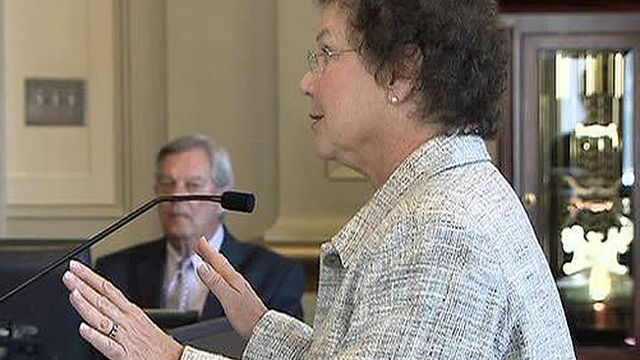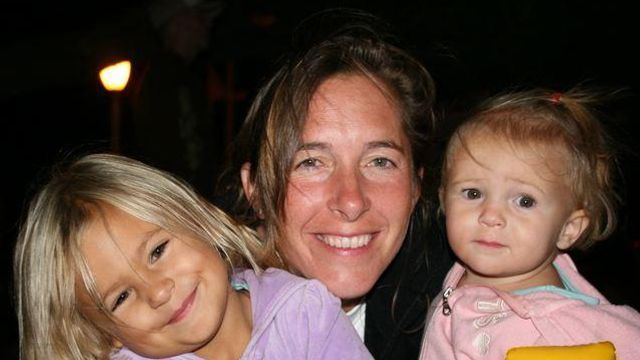Appellate judges hear Brad Cooper's case for new trial
The North Carolina Court of Appeals heard oral arguments for about an hour Tuesday morning in the high-profile case of Brad Cooper, a Cary man serving life in prison for strangling his wife and dumping her body in an unfinished housing development nearly five years ago.
Posted — UpdatedBrad Cooper, 39, was found guilty in May 2011 of first-degree murder in the July 2008 death of 34-year-old Nancy Cooper, whose body was found in a drainage ditch in a cul-de-sac of an undeveloped subdivision near their Cary home.
The state argued the search was made the day before Nancy Cooper disappeared, but defense attorneys claimed the computer had been hacked and that the evidence had been planted on the machine.
The judge ruled that two witnesses the defense presented to support their argument, however, could not testify.
Jay Ward was a network security professional but was found by the trial court not to be qualified as a forensics computer analyst. Giovanni Masucci wasn't allowed, partly because the judge found that his name was not on a potential witness list, as required by law.
"The defendant has a constitutional right to present his defense," appellate attorney Ann Peterson told the panel of judges. "The Google Maps (evidence) was his defense. Mr. Ward or Mr. Massuci was his defense, and the jury heard none of it."
The judges' questioning focused partly on the definition of a forensics computer analyst.
"Jay Ward specifically said he was not one," Assistant Attorney General Latoya Powell, said, noting that Ward also admitted that he had no training to use any of the forensic tools he had borrowed to work on the Cooper case.
Peterson argued, however, that even though he didn't hold the title of a forensics examiner, his career expertise qualified him to explain the data and results to the jury. She likened the situation to a medical examiner testifying about bullet wounds.
"He's not a ballistics expert, but he gets to testify because he sees it all the time, He works with it all the time, and his knowledge is better than the jurors," she said. "There's no question that Mr. Ward was not certified, but he had worked with that data for 20 years. He knew those computers inside and out. He was the super-expert, and he wasn't allowed to testify."
Powell disagreed.
"Mr. Ward testified that he had only conducted two forensic examinations in his career," she said.
As for Masucci's testimony, Peterson argued, his opinions were identical to Ward's and there was no reason the state could not have been prepared to proceed with his testimony.
Prosecutors objected to allowing him to be called, saying they did not have time to properly prepare an adequate cross-examination because Masucci was a last-minute witness.
But that wasn't the case, Peterson said, because Masucci's findings and opinions were identical to Ward's.
"They had the opinions. They had the data. They had everything they needed except Mr. Masucci's background, which is what the witness list is intended to do – give them the names of the people so they can go and figure out what this person's background is," Peterson said. "They had the expert opinions. They didn't need time to research that."
Nearly 100 people testified over the course of 36 days in the trial as prosecutors sought to prove that Brad Cooper planned his wife's murder and killed her after she returned home from a neighborhood party in the early hours of July 12, 2008.
Witnesses said the Coopers, who moved to Cary from Canada, were in the process of separating and that Nancy Cooper wanted to move back to Canada with their two young children but that Brad Cooper had become controlling of the family finances and, at one point, had taken one child’s passport to keep them from leaving the country.
Defense attorneys argued that Nancy Cooper went jogging on the morning of her death and never returned home.
The investigation into her death was marred by "dishonest" and "inept" police work, they said, alleging that investigators never looked beyond Brad Cooper as a suspect because they were concerned that a random murder would tarnish Cary's reputation as a safe community.
Jurors deliberated for three days before returning their guilty verdict.
The jury foreman said a month after the trial that the map evidence "drove the outcome" of the case and caused "a lot of the other circumstantial evidence to become relevant and credible."
Brad Cooper's defense attorney, Howard Kurtz has said he is hopeful for an appeal and believes "we have a tremendously good chance."
As for Brad Cooper, he awaits an appellate decision – which could be rendered in the next three months – at Central Prison in Raleigh, where he has been since his conviction, according to the North Carolina Department of Public Safety.
"I think he's pretty down," Peterson said after Tuesday's hearing. "You would be too if you lost your wife and your kids and were sitting in jail. I think he's pretty down."
When asked if he is optimistic about his case, she replied:
"It's hope. That's all."
Related Topics
• Credits
Copyright 2024 by Capitol Broadcasting Company. All rights reserved. This material may not be published, broadcast, rewritten or redistributed.






